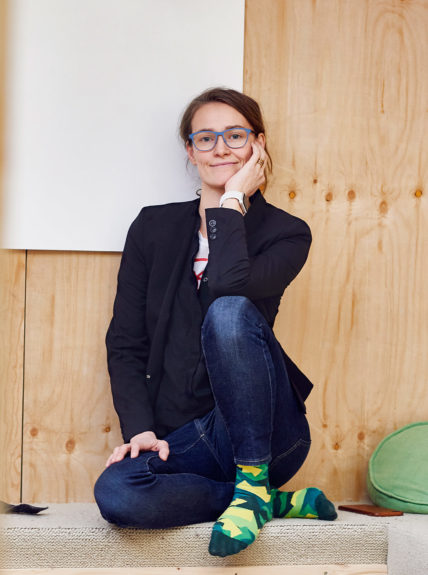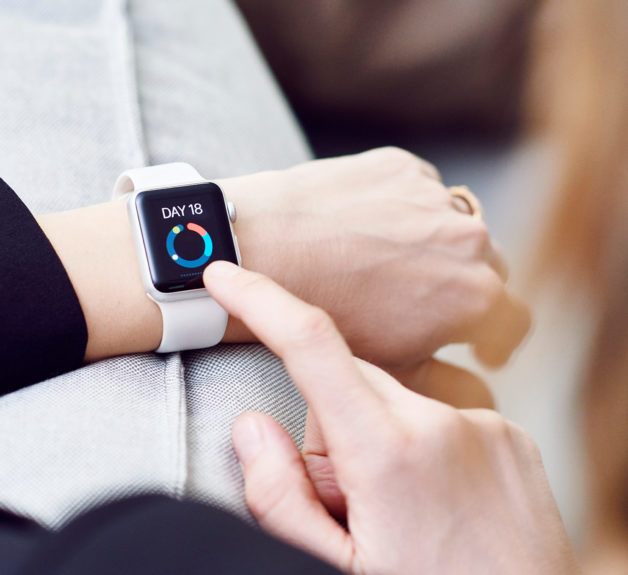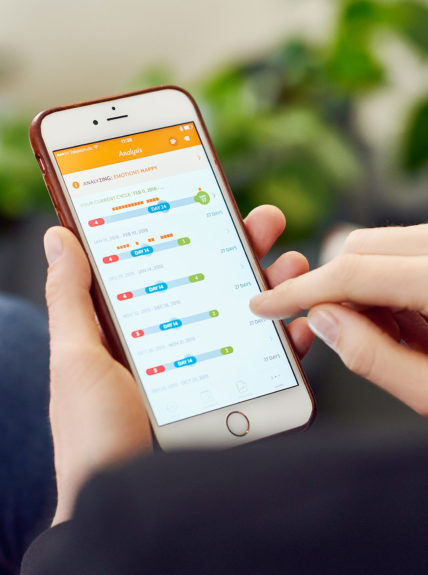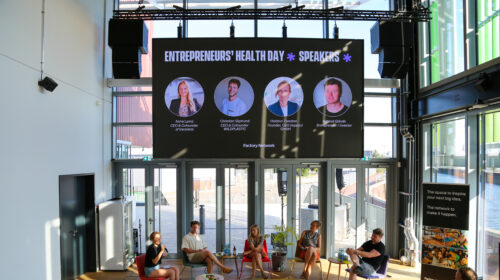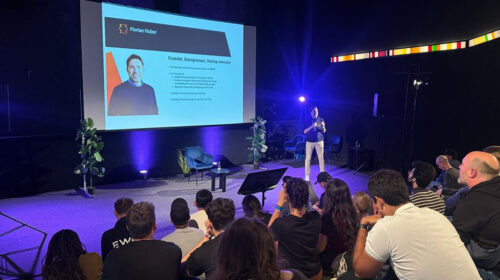
April 29, 2016
Clue: How Big Data Empowers Women
The Clue app currently has more than four million active users in over 190 countries, and is one of the most popular apps in the “Health & Fitness” category in the United States, Germany, France and many other countries. Clue’s mission is to empower women globally and allow them to take better control of their lives. They do so by fighting to eliminate the existing social stigma around women’s periods and reflecting on a vital part of our lives, “without menstruation there would be no humans on this planet”, as Ida so accurately put it. She is convinced that technology will profoundly change the future of family planning and female health tracking. Not only Ida, but Clue’s investors too – the Berlin-based company has recently seen a $7 million Series A round, with investment from New York’s Union Square Ventures and London-based Series A fund Mosaic Ventures.
We spoke to Ida about her drive for becoming an entrepreneur, Clue’s mission, the next trends in health tracking, and working with one’s significant other on a professional level.

You didn't spend much time being employed by others, but became an entrepreneur early on. What was your drive?
That’s a good observation, I’ve never really had a job anywhere. This urge to create something on my own started really early, when I was at school. I loved going to school and learning new things, I had good friends, but didn’t like the whole social pressure of being inside or outside groups. I knew that I didn’t want to have that in a workplace. When I graduated from school in Denmark and people asked me what kind of job I would like to have, I said I wanted to create jobs. Then soon after graduation I actually did get a job, a consultancy position in India, working for a large corporation. I went through the training, packed my bags, said goodbye and was ready to leave. The night before my departure I got a call from somebody I’ve never met, saying that I can’t go to India after all. The whole thing fell through because of internal conflicts. It was a really dark side of corporate I saw. I remember, I’ve once been told that I don’t have corporate mindset and took it as a compliment.
Early in your career you led global motorcycle tours - how did that experience lead you to Clue
It was really natural to me because I was brought up traveling the world on motorcycles with my parents and my brother. Between the ages of 1 and 13, my parents took me on altogether four long trips. After my first attempt at joining the working society failed, I spent a whole year contemplating about what I could do with my life. I ended up leading motorcycle tours, traveled to tons of exciting places and met tons of people. It was a lot of fun, but after five years it was time for a change.
How did you come up with the idea for Clue?
I’ve always been fascinated by gender issues and sexuality. When I was 20, I started a book project about young women’s sexuality. I was tracking my own cycle with a cycle computer just because I was interested in understanding my body. The user experience was bad, so I started thinking and researching how it could be improved. I thought, how is that, that something so foundational has seen barely any innovation since the 1950s? This got me provoked.
Smartphones had just come out at the time and I thought if you could collect that data with the help of a phone that could be really powerful. If you could take your phone and it would tell you whether that’s a day you can get pregnant or not, or on which days you have to use a condom or not. I’ve been in steady relationships since I was 16, so basically my whole adult life, and for many years I was wondering how to do this properly.
After a while, I started speaking to my friends and potential investors. The feedback I got made it clear that there was massive unleashed potential in this field.
“Just a reminder: without menstruation there would be no humans on this planet. Sometimes we tend to forget that.”
Who are your co-founders?
Meeting my co-founders was a serendipitous journey. I met my husband and co-founder, Hans Raffauf soon after I had the idea, at a tech conference in Denmark. He drove his car back to Berlin, I hitchhiked and he picked me up. In Berlin, we met Moritz von Buttlar, our co-founder and lead scientist. The fourth co-founder is our CPO, Mike LaVigne, whom we met during a pro bono project he did together with us.
How is it working with your husband, Hans, on a professional level?
It’s working really well. We’re very different, which is a big strength, but also challenging at the same time. We can disagree on the little things, but we always agree on the big ones. When you have a startup, that kind of sucks up your whole life and mind, so sharing your work life with your partner can actually be really helpful. There wouldn’t be enough hours in a day to try to explain everything you go through to your significant other – life, work and family becomes one big bubble. It also means that we talk about work a lot, but we’ve learned to get more disciplined over time. One thing I really enjoy is that there is no competition between our careers, there’s no “my meeting is more important than your meeting” mentality. We’re pulling in the same direction and we just have to make it work.
Are you solely targeting women wanting to get pregnant, young teenagers or pre-menopausal women with the Clue app?
We’re targeting all of them. Our idea was to build a tracking app, which you can picture as a companion, taking you by the hand and supporting you when life changes: from the time you have your first period, to understanding birth control, to trying to have a baby, through pregnancy and eventually menopause. I’d love the app to be much more versatile and specifically target the stage of life you’re at. The Clue app is definitely not only for women who want to get pregnant.
What has been the most remarkable user feedback?
There was a woman who, through tracking her period, could see that something was off and learned that she had a pregnancy outside the uterus, which is really a dangerous condition. She said that in a way we saved her life, which is of course very encouraging. An opera singer told us that she uses Clue because her voice changes throughout her hormonal cycle. Also, we have users who are not heterosexual and appreciate that Clue is not so gender normative. But the Clue app is not only for women, we have male users too, who track their partner’s cycle because they find it helpful to know when she is going to get moody and sensitive around her period.
What were the main findings of your survey into users attitudes towards periods?
I was really overwhelmed by the amount of response we got. Altogether 90,000 people answered from 190 countries. I think the fact that so many people participated shows us that this is a very important part of our lives, but a part of life we don’t usually talk about. We’ve found for example, that there are a lot of people, even in our part of the world, who would rather stay at home from school or work because they don’t want to risk somebody finding out about their period. That surprised me. The number of euphemisms that people use to describe their period was also shocking: we collected 5000 different words from only 10 countries. Just a reminder: without menstruation there would be no humans on this planet. Sometimes we tend to forget that.
Do you have users in countries where menstruation is still a taboo topic?
Yes, the need for something like our app is similar all around the world. A vlogger from Saudi Arabia mentioned us in a video, and within one day we had thousands of new downloads from that region. And that happened in a market we usually don’t specifically target, but the second there’s some sort of exposure, it turns out that there’s a huge demand. The potential is really big, as there are more fertile women with access to phones than access to contraceptives in this world. Clue is not a contraceptive, but having the information you get through the app is a thousand times better than having no understanding of what’s going on with your body. Now we can get to all these people who have smartphones or even basic feature phones, and that’s just fantastic.
I think the whole educational aspect is really important. This is one of the most meaningful problems you can solve through a device. If women have awareness of their bodies, they can decide on family size, educate their children and stay healthy. Tracking female cycle and health is just the first step that allows many great developments to happen. Just think about it: with growing awareness about female health and family planning the education level improves, birth rates go down and health rates go up, economic growth picks up, and women are more empowered, promoting gender equality and eventually global peace.
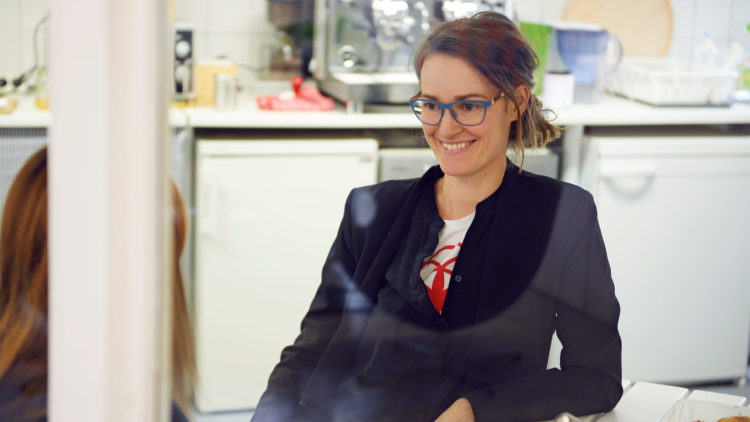
“There are more fertile women with access to phones than access to contraceptives in this world.”
Clue is a free app - how are you making money?
We focus a lot on growth at the moment. Everything you can do in terms of monetizing can be done more impactful when you have a lot of users. Right now, I don’t worry about that aspect at all. Monitoring your health is something that you have to do and it’s a space where women are already spending money. At some point this might become what we really focus on, but the app is free and what is out there now will remain free.
Are you planning any new features or apps?
We have so much we want to do! I’d love to create a sort of artificial intelligence for female health. Right now we’re looking at the patterns of various conditions that might be interesting to diagnose, or just warn users that they might want to see a doctor about that. We collect high-quality and high-volume anonymous data from all parts of the world, and leverage this data through research projects in partnership with universities, like Oxford or Stanford.
Is tech the key to a healthy future? Do you see any trends on the horizon?
I think the next big thing could be developing a digital contraceptive. Our app already supports natural family planning, so for example if a user takes her temperature every day, that makes predictions for fertility more accurate. In the near future, we’ll be able to leverage other data streams as well, like data from fitbits and smartwatches. Our mission is to create a personalized, intelligent tracking system, that can take all the different data and turn them into a prediction that is so accurate that users can trust it as a contraceptive. For example if I, when I was 30 could have seen that I will be able to have a baby until I’m 45, that probably would have been valuable information. For many women who go through early menopause, the app could give a warning “Hey, if you want to start a family, you should not wait another 5 years”. This is still a little bit futuristic, but we’ll slowly getting there.
